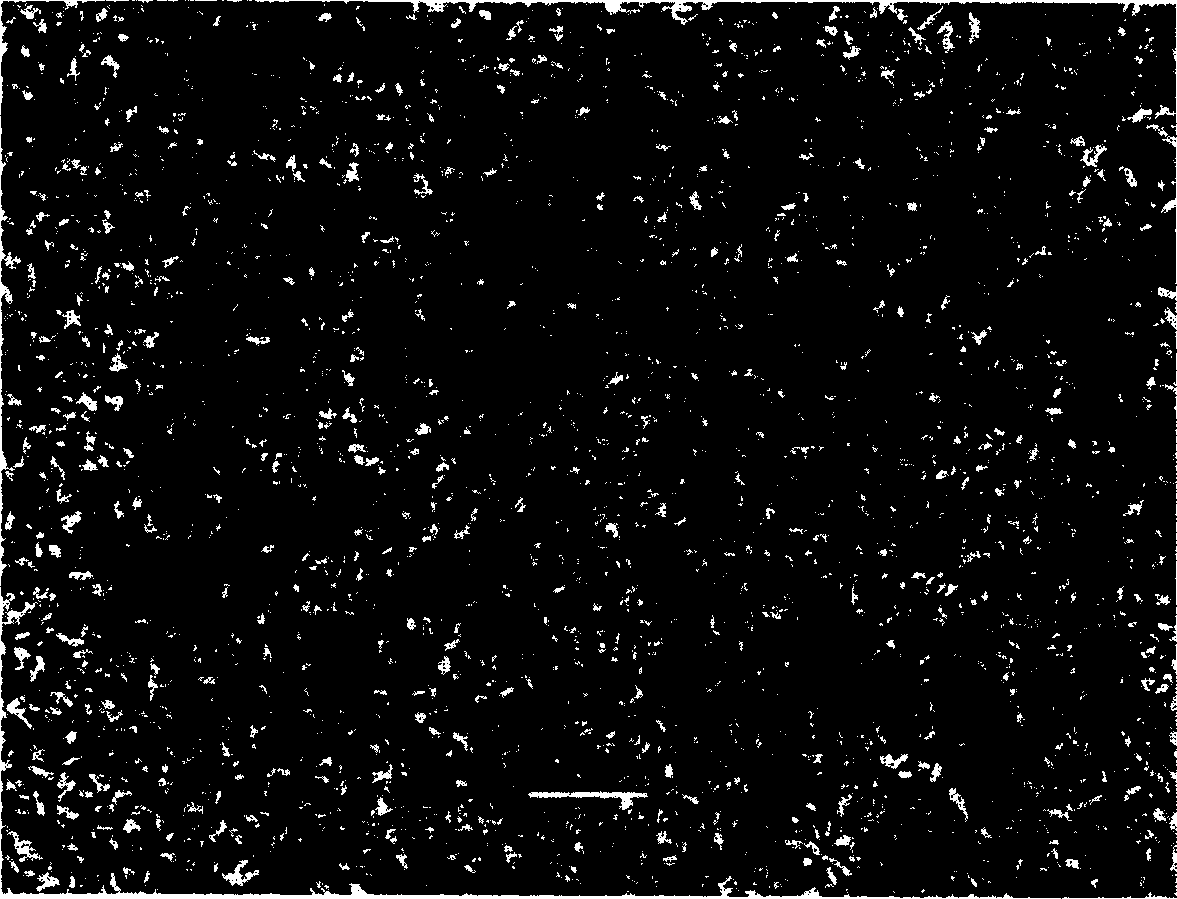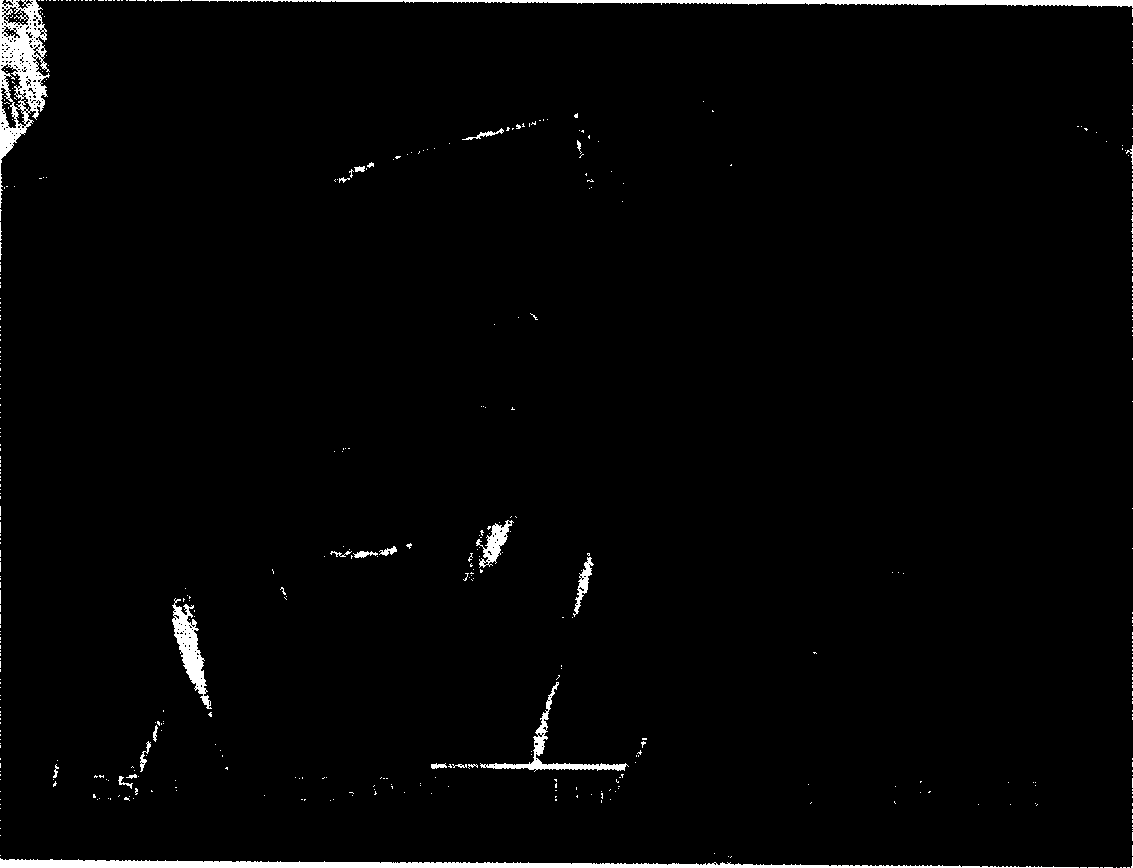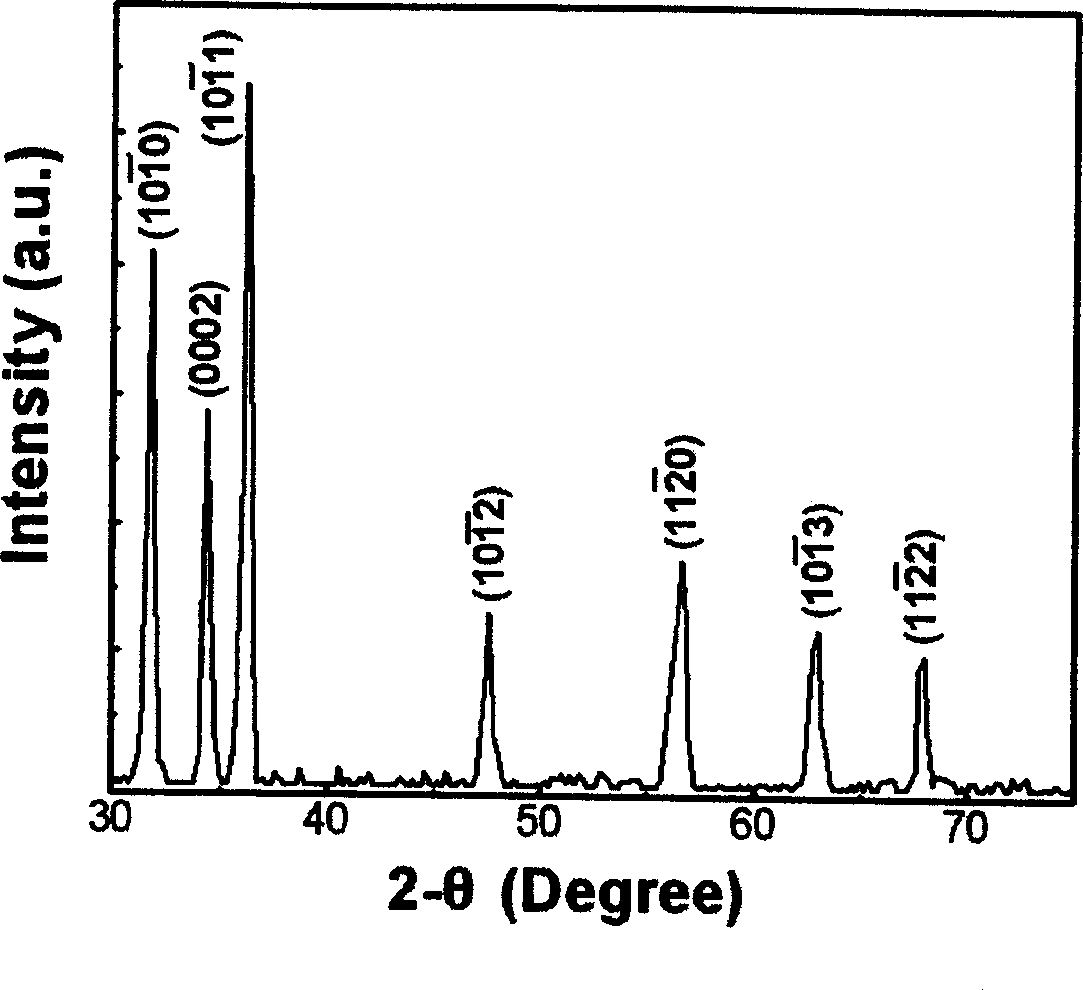Method of growing nano-rod shaped zinc oxide by hydrothermal decomposition
A technology of nano-rods and zinc oxide, applied in the field of preparation of nano-scale zinc oxide, can solve the problems of high reaction temperature, complex equipment and high cost of gas phase method, and achieve the effects of reducing ion species, reducing preparation cost and simplifying preparation process
- Summary
- Abstract
- Description
- Claims
- Application Information
AI Technical Summary
Problems solved by technology
Method used
Image
Examples
Embodiment 1
[0021] 1. Selection and treatment of the substrate: first scrub the wide strip copper substrate with acetone, and then ultrasonically clean it with acetone and deionized water for 15 minutes each;
[0022] 2. Preparation of film growth solution: 3ml of concentrated ammonia water with a mass ratio of 25% was added dropwise to 40ml of a 0.12M zinc chloride solution and fully stirred; the solution was placed in a glass bottle with a screw cap.
[0023] 3. Treatment of film growth solution: Seal the above solution and use ultrasonic treatment for 25 minutes;
[0024] 4. Insert the cleaned copper substrate obliquely into the solution and seal the solution again. Immediately thereafter, the closed container was placed in an oven at 94° C. for 60 minutes. The substrate was taken out and rinsed with deionized water and dried naturally. Finally, densely arranged tower-like zinc oxide nanostructures can be obtained on the downward side of the substrate.
[0025] image 3 The XRD pat...
Embodiment 2
[0028] 1. Selection and treatment of the substrate: first scrub the wide-strip stainless steel substrate with acetone, then ultrasonically clean it with acetone and deionized water for 15 minutes each;
[0029] 2. Preparation of film growth solution: 2.5 ml of concentrated ammonia water with a mass ratio of 25% was added dropwise to 40 ml of 0.12M zinc chloride solution and fully stirred; the solution was placed in a glass bottle with a screw cap.
[0030] 3. Treatment of film growth solution: Seal the above solution and use ultrasonic treatment for 35 minutes;
[0031] 4. Insert the cleaned stainless steel substrate obliquely into the solution and seal the solution again. Immediately thereafter, the closed container was placed in an oven at 96° C. for 70 minutes. The substrate was taken out and rinsed with deionized water and dried naturally. Finally, densely arranged tower-like zinc oxide nanostructures can be obtained on the downward side of the substrate.
Embodiment 3
[0033] A method for hydrothermally decomposing and growing nanorod type zinc oxide:
[0034] The first step: add concentrated ammonia water with a mass percentage concentration of 25% dropwise into a zinc chloride solution with a concentration of 0.08-0.15M and fully stir to adjust the pH value of the solution between 9 and 11, thereby generating Zn(NH 3 ) 4 2+ In this embodiment, concentrated ammonia water can be added dropwise to 0.08, 0.10, 0.12 or 0.15M zinc chloride solution, and the pH value of the solution is adjusted to 9, 9.5, 9.7, 10.1 or 11;
[0035] The second step: seal the above solution and use ultrasonic treatment for 25 to 35 minutes. In this embodiment, the time of ultrasonic treatment is 25, 28, 32 or 35 minutes;
[0036] Step 3: Insert the cleaned substrate into the solution and seal the solution again, and then place the sealed solution in an environment of 80-98°C for 45-70 minutes. In this embodiment, the sealed solution can be placed at 90, Stand at ...
PUM
| Property | Measurement | Unit |
|---|---|---|
| diameter | aaaaa | aaaaa |
| length | aaaaa | aaaaa |
Abstract
Description
Claims
Application Information
 Login to View More
Login to View More - R&D
- Intellectual Property
- Life Sciences
- Materials
- Tech Scout
- Unparalleled Data Quality
- Higher Quality Content
- 60% Fewer Hallucinations
Browse by: Latest US Patents, China's latest patents, Technical Efficacy Thesaurus, Application Domain, Technology Topic, Popular Technical Reports.
© 2025 PatSnap. All rights reserved.Legal|Privacy policy|Modern Slavery Act Transparency Statement|Sitemap|About US| Contact US: help@patsnap.com



